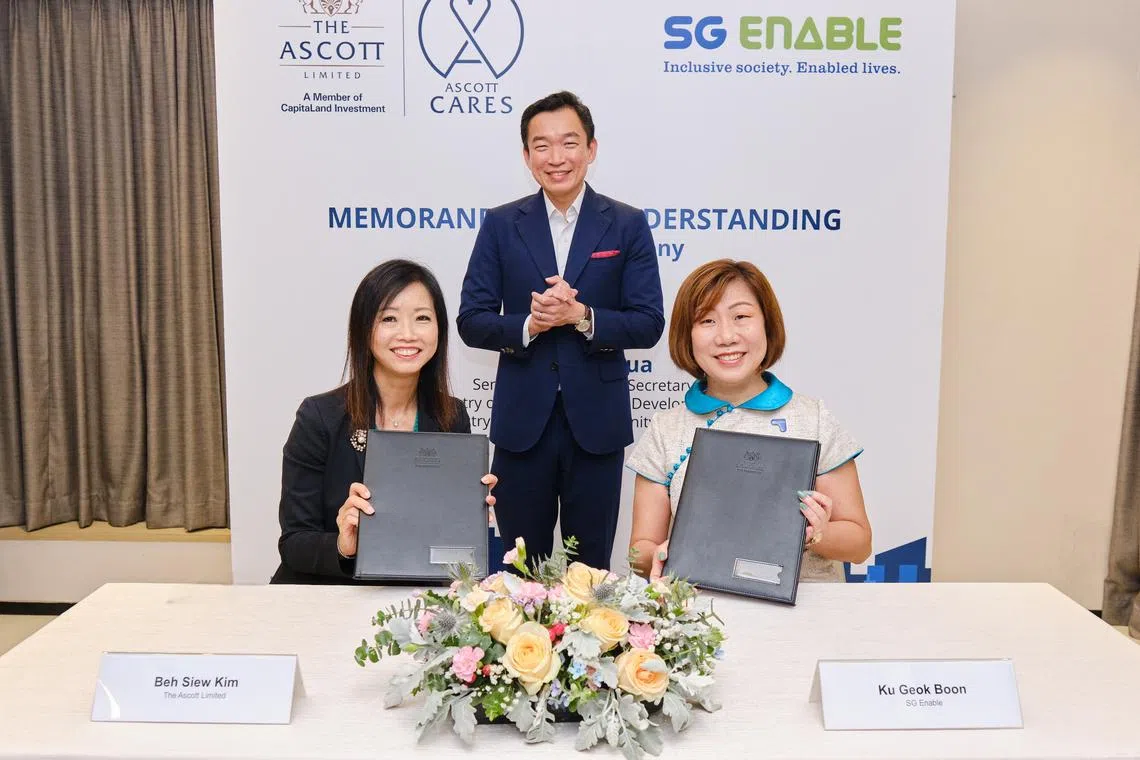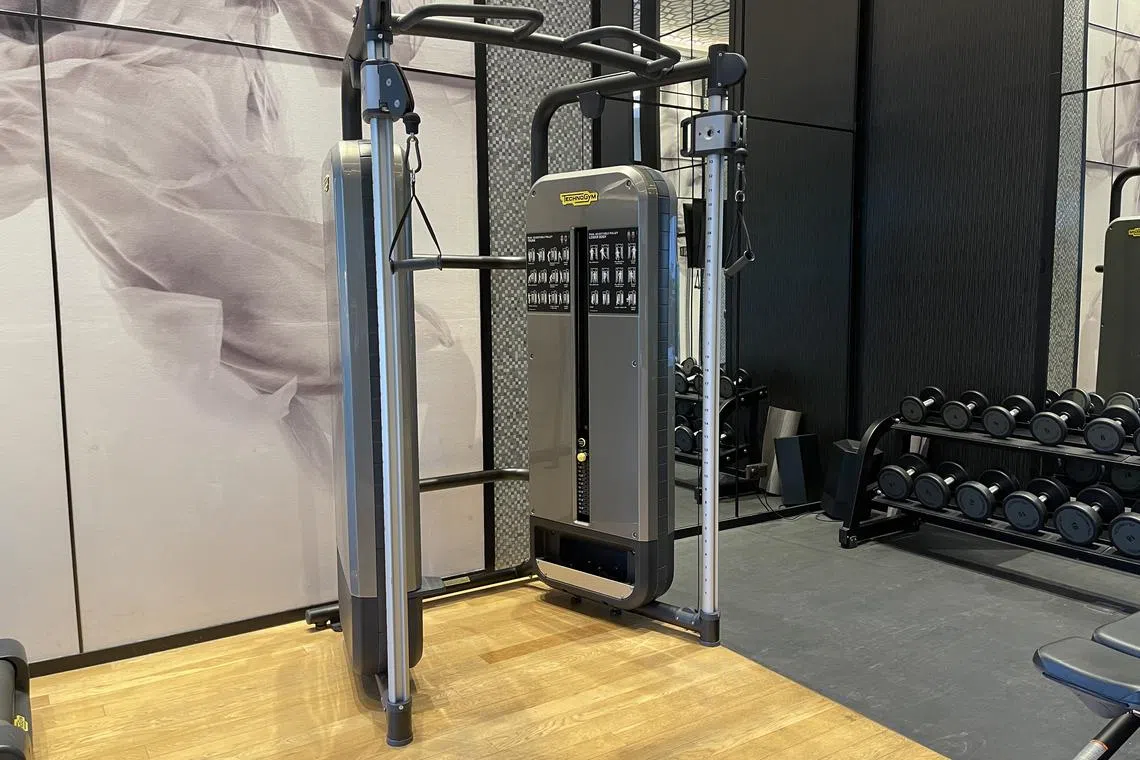Ascott partners SG Enable to foster disability inclusion in Singapore’s hospitality sector
They will also develop resources and training programmes for the industry
THE Ascott Limited, CapitaLand Investment’s lodging business unit, on Thursday (Jun 20) inked a memorandum of understanding (MOU) with SG Enable to promote disability inclusion and set new standards for accessibility in the hospitality sector.
The partnership between Ascott and Singapore’s focal agency for disability and inclusion is the “first of its scale” in the country’s hospitality industry, Ascott said. It will centre around five pillars: inclusive spaces, programmes, digital interfaces, hiring and training.
Ascott and SG Enable will also collaborate to develop resources and disability inclusion training tailored for the hospitality industry at the Ascott Centre of Excellence, the unit’s global hospitality training centre. This will uplift and upskill the wider industry. Insights gained from joint initiatives will be used to develop a playbook in 2025.
Eric Chua, Senior Parliamentary Secretary for Culture, Community and Youth, as well as Social and Family Development, who was guest of honour at the event, said: “These resources will further steer the disability inclusion efforts of Ascott’s properties around the world.”

Accessible rooms and facilities
Ascott Orchard Singapore, where the MOU signing event took place on Thursday, currently has two accessible rooms, and 16 lodging Ascott properties have similar ones.
These rooms are equipped with sliding doors, non-carpeted floors and grab bars in the bathroom, making it easier for persons with disabilities (PWDs) with mobility issues to move around. PWDs who were invited to stay in the rooms and share their experiences commented that the furniture was “at a good height” and the room’s features were “well-thought-out”, as they did not have to rely on their caregivers as much.
Navigate Asia in
a new global order
Get the insights delivered to your inbox.
At the signing ceremony, three persons with disabilities and their family members were also invited to share their experiences with the accessibility features of Ascott Orchard Singapore.
Besides the rooms, facilities at Ascott Orchard Singapore have been designed to be more inclusive. For example, the walkways are wide, catering to PWDs using mobility devices. The pool has a ramp at the side and a grab bar, and some of the exercise equipment at the gymnasium can accommodate wheelchairs.

In addition, all public toilets are equipped with accessibility features such as grab bars. The property has clear and informative signs, information in braille and tactile maps. Guests with hearing loss or visual impairment can easily communicate with hotel staff through the Kipsu messaging platform.
Making the travel experience more inclusive
Chua said: “The MOU is a significant milestone, one that could push Singapore to becoming a more inclusive city not only for Singaporeans, but also for travellers all over the world.”
Beh Siew Kim, chief financial and sustainability officer, lodging, at CapitaLand Investment, noted that this MOU was developed to make the tourism space more inclusive for PWDs travelling to Singapore.
She said: “Within hospitality, I think (disability inclusion) is important, because we are already in the service industry… PWDs deserve an equal chance of having a holiday, and working and travelling for work, and staying at properties that provide that comfort as well.”
The Ascott team thought about how the entire travel experience could be inclusive and accessible, from the process of searching for a room to checking out of the property.
For example, Ascott enhanced the design of its website to simplify the user experience, with accessibility information displayed prominently throughout the booking journey.
Beh added: “When it comes to accessibility, people always think about the hardware. But a big part of it is actually the software – making sure our guests and PWDs feel valued and welcomed.”
In the short term, Ascott will continue improving the properties’ accessibility features based on feedback from PWDs. By end-2024, it will formalise refurbishment plans for at least one property in Singapore to implement new accessibility features.
Disability inclusion training is still ongoing, with plans for all service associates in Singapore-based properties to complete training by 2026. The unit also aims to progressively increase the number of its PWD employees and will redesign job scopes and workplaces where necessary.
Beh said: “I believe that with this MOU with SG Enable, and within the hospitality sector in Singapore, and hopefully globally, people can pick up on this idea and be inspired to do more in this space.”
Decoding Asia newsletter: your guide to navigating Asia in a new global order. Sign up here to get Decoding Asia newsletter. Delivered to your inbox. Free.
Copyright SPH Media. All rights reserved.

